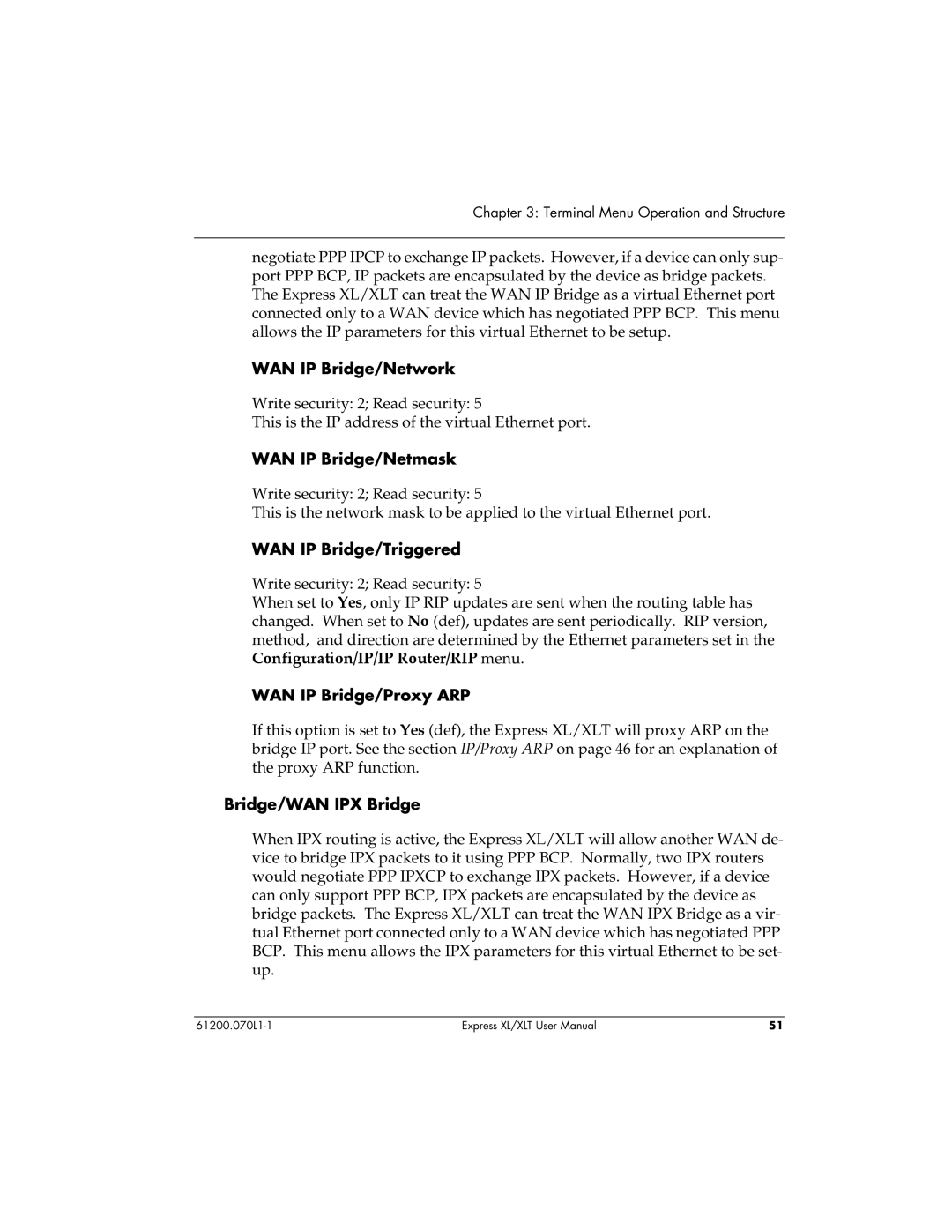
Chapter 3: Terminal Menu Operation and Structure
negotiate PPP IPCP to exchange IP packets. However, if a device can only sup- port PPP BCP, IP packets are encapsulated by the device as bridge packets. The Express XL/XLT can treat the WAN IP Bridge as a virtual Ethernet port connected only to a WAN device which has negotiated PPP BCP. This menu allows the IP parameters for this virtual Ethernet to be setup.
WAN IP Bridge/Network
Write security: 2; Read security: 5
This is the IP address of the virtual Ethernet port.
WAN IP Bridge/Netmask
Write security: 2; Read security: 5
This is the network mask to be applied to the virtual Ethernet port.
WAN IP Bridge/Triggered
Write security: 2; Read security: 5
When set to Yes, only IP RIP updates are sent when the routing table has changed. When set to No (def), updates are sent periodically. RIP version, method, and direction are determined by the Ethernet parameters set in the Configuration/IP/IP Router/RIP menu.
WAN IP Bridge/Proxy ARP
If this option is set to Yes (def), the Express XL/XLT will proxy ARP on the bridge IP port. See the section IP/Proxy ARP on page 46 for an explanation of the proxy ARP function.
Bridge/WAN IPX Bridge
When IPX routing is active, the Express XL/XLT will allow another WAN de- vice to bridge IPX packets to it using PPP BCP. Normally, two IPX routers would negotiate PPP IPXCP to exchange IPX packets. However, if a device can only support PPP BCP, IPX packets are encapsulated by the device as bridge packets. The Express XL/XLT can treat the WAN IPX Bridge as a vir- tual Ethernet port connected only to a WAN device which has negotiated PPP BCP. This menu allows the IPX parameters for this virtual Ethernet to be set- up.
Express XL/XLT User Manual | 51 |
